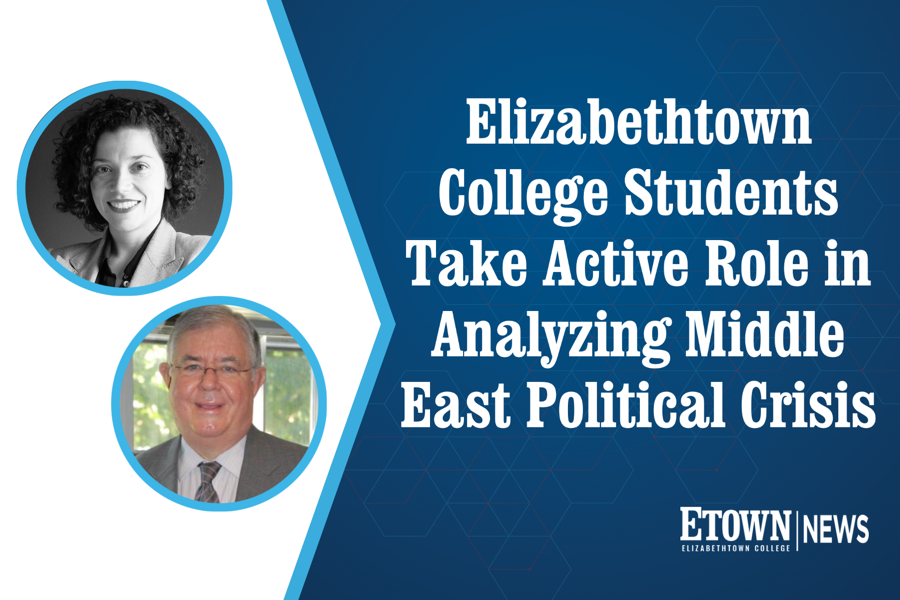In 2018, Professor of Political Science and College Professor of International Studies Dr. Oya Dursun-Ozkanca and Etown Ambassador in Residence John B. Craig received a Mellon Grant to offer a co-taught interdisciplinary experimental course focusing on Middle East Politics.
This year during the College’s May Term, the pair offered HIC 206, an Honors Middle East Politics course, as part of the Interdisciplinary Colloquium. The course featured a role-play simulation exercise where students were tasked with responding to a recent crisis in the Middle East. They constructed teams of up two that represented a variety of different national, subnational, and international actors during a two-day simulation. In the simulation, they engaged in crisis decision-making processes on an important item in Middle East politics: the Libyan quagmire.
“Given the importance of the developments occurring in the Middle East for international affairs, it is important for our students to acquire a deeper understanding of the contemporary Middle East politics,” Dursun-Ozkanca said.
Students were asked to represent their respective positions to the best of their capabilities. They issued statements of condemnation, press releases, a minimum of three written statements during the course of the simulation.
The simulation was followed by a simulation debriefing session, where the students consistently expressed that the simulation was a highlight of the course and that they were grateful to have a chance to apply what they learned throughout the course into a real-life crisis simulation scenario.
The course offered students credit toward their Signature Learning Experiences, and completed several Core requirements, including Social Sciences Area of Understanding, Non-Western Cultural Heritage, and Guided Writing and Research.
Dursun-Ozkanca says the Honors Program is “increasingly internationalizing its curriculum in line with the Strategic Plan priorities of the College and following with the program’s newly adopted motto, ‘Learn, Serve, and Lead’.”
“It is important for our students to participate in classes like this to experience firsthand the challenges of policymaking and crisis decision-making,” said Dursun-Ozkanca. “It is an excellent example of experiential learning and provides ample opportunities for our students to not only learn the concepts and theories on the course topic but go ahead and apply what they have learned in the class into the simulation topic.”

